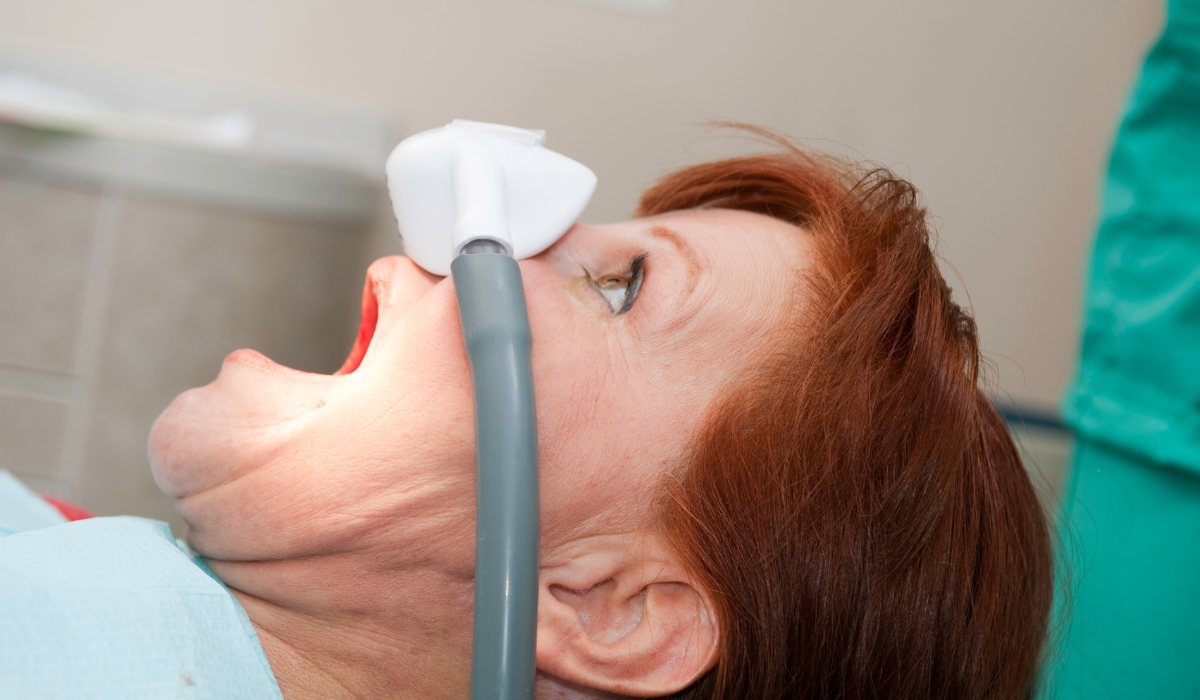Does Laughing Gas put you to Sleep

Laughing gas, also known as nitrous oxide, is a gas that has been used for various purposes for over a century. Dentists use it to alleviate pain and anxiety during dental procedures, and it’s used recreationally to produce a sense of euphoria. But does laughing gas put you to sleep? In this article, we’ll explore the effects of laughing gas and whether or not it can cause drowsiness.
What is laughing gas?
Laughing gas is a colorless, odorless gas that has a sweet taste. It was first discovered in the late 18th century, and it has been used for various purposes ever since. In dentistry, laughing gas is used as an anesthetic to help patients relax during dental procedures. It is also used recreationally as a party drug.
How does laughing gas work?
Laughing gas works by slowing down the body’s responses, which can cause a feeling of euphoria and relaxation. It affects the central nervous system, which is responsible for controlling bodily functions. When laughing gas is inhaled, it enters the lungs and is absorbed into the bloodstream. From there, it travels to the brain, where it affects the release of certain neurotransmitters.
Medical uses of laughing gas
Laughing gas is commonly used in dentistry as a mild form of anesthesia. It is often used to help patients relax during dental procedures, such as fillings, extractions, and root canals. It is also used during labor and delivery to help manage pain.
The recreational use of laughing gas
Laughing gas is also used recreationally as a party drug. It is often sold in small canisters, which are then inhaled using a balloon or whipped cream dispenser. The effects of recreational use are often short-lived and can include a sense of euphoria, dizziness, and hallucinations.
Can laughing gas cause drowsiness?
Laughing gas can cause drowsiness, but it is not a common side effect. In fact, laughing gas is often used to keep patients awake during procedures. However, in some cases, patients may feel drowsy or lightheaded after inhaling laughing gas.
Does laughing gas have any side effects?
Laughing gas has several potential side effects, including dizziness, lightheadedness, nausea, and vomiting. In rare cases, it can cause allergic reactions, which can be life-threatening.
What are the risks of using laughing gas?
The risks of using laughing gas are relatively low, especially when compared to other forms of anesthesia. However, there is a risk of overdose, which can cause serious health problems. In addition, prolonged use of laughing gas can cause damage to the nervous system.
Is laughing gas safe for everyone?
Laughing gas, or nitrous oxide, is generally considered a safe form of anesthesia. However, like any medical treatment, it may not be appropriate for everyone.
Certain medical conditions may make the use of laughing gas risky. For example, people with a history of substance abuse may be at greater risk of developing addiction to nitrous oxide. People with emphysema or other respiratory conditions may also be at higher risk of complications from laughing gas.
Additionally, some people may have an allergic reaction to laughing gas or other components of the gas mixture. It is important to discuss any medical conditions or allergies with your healthcare provider before receiving laughing gas.
Overall, laughing gas is considered safe for many patients and is commonly used in dental procedures. However, it is important to be aware of the potential risks and to discuss an
concerns with your healthcare provider.
Can laughing gas be used during pregnancy?
The use of laughing gas during pregnancy is a topic of debate among healthcare professionals. While nitrous oxide is considered a relatively safe form of anesthesia, there is limited research on its effects during pregnancy.
Some studies suggest that nitrous oxide may be associated with an increased risk of spontaneous abortion or birth defects, particularly when used in the first trimester of pregnancy. However, other studies have not found a significant association between nitrous oxide use and adverse pregnancy outcomes.
Because of the lack of conclusive evidence, the use of laughing gas during pregnancy is typically avoided unless it is deemed necessary to protect the health of the mother or the baby. In such cases, the risks and benefits of nitrous oxide use should be carefully considered and discussed with the patient.
Overall, the use of laughing gas during pregnancy should be approached with caution and only used when necessary. Patients should discuss any concerns with their healthcare provider and carefully consider the potential risks and benefits.
Conclusion
Laughing gas is a commonly used form of anesthesia in dentistry and can produce a sense of relaxation and euphoria. While it is generally considered safe, it is important to be aware of the potential side effects and risks associated with its use.
RECENT ARTICLES
